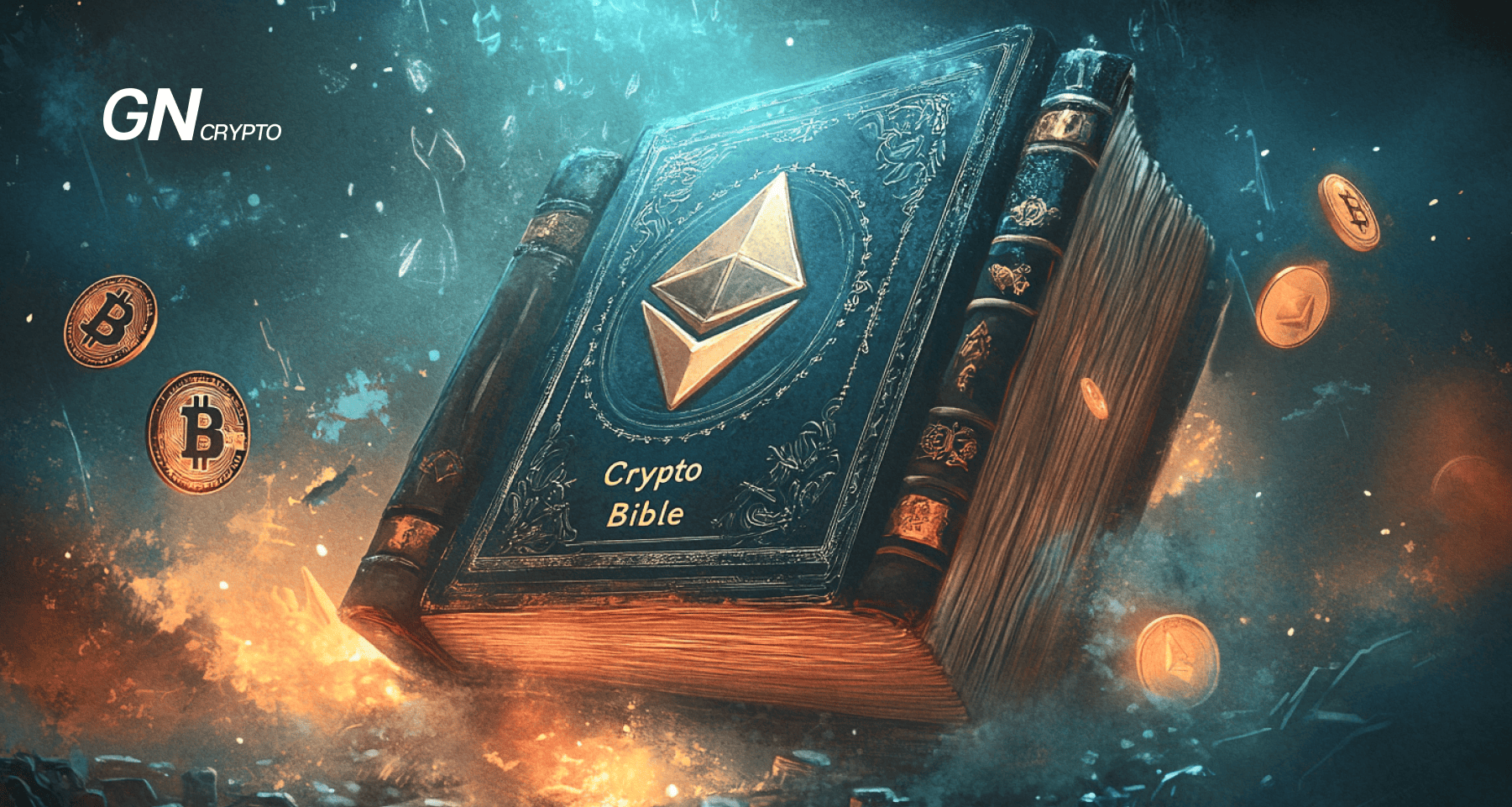Religions and Blockchain: A Surprising Connection

Despite being worlds apart in age and purpose, religions and blockchain technology share some fascinating similarities. From the devotion of their followers to the diversity of denominations (or blockchain networks), both are built on ideas of decentralization and faith in a higher power.
On this page
Interestingly, some studies suggest a link between religiosity and cryptocurrency adoption, highlighting unexpected parallels between these two realms.
Don’t miss our previous article, where we explored even more ways religion and blockchain intersect.
How Blockchain Mirrors Divine Principles
A closer look reveals fascinating parallels between the core ideas of religion and the philosophy of blockchain technology.
The Enigma of the Prophets
The creator of the first blockchain remains unknown. Similarly, figures like Jesus and Muhammad, while believed to have been real, are surrounded by mystery, with no definitive proof of their exact nature.Their teachings were immortalized in sacred texts such as the Bible, Torah, and Quran. In the blockchain world, Bitcoin’s white paper, authored by the enigmatic Satoshi Nakamoto, holds a similar revered status.
What unites these texts is their unassailable authority and the fact that their content remains unchanged.
Evangelists
Bitcoin maximalists like Nick Szabo, Hal Finney, and Gavin Andresen, through their dedication to spreading the “Bitcoin gospel,” bear a striking resemblance to the apostles of Christ or the disciples of the prophet ‘Isa. Meanwhile, the tragic story of John McAfee, who reportedly hanged himself in a prison cell, is eerily similar to the tale of Judas Iscariot, prompting the question: “Can such parallels truly be a coincidence?”
John McAfee and Judas Iscariot, separated by centuries and vastly different circumstances, share a haunting connection: the betrayal of their ideals, followed by a tragic end.Judas, after betraying Jesus, was overcome with guilt and ended his life by hanging himself from a fig tree. His death remains a powerful symbol of despair and remorse for betraying Christ and the values he represented.
John McAfee, who began as a vocal crypto-anarchist, later pursued a U.S. presidential bid but became entangled in scandals involving bribery, defrauding clients, and evading the law. His tumultuous life of legal troubles and tax evasion ultimately led to his imprisonment, where he died by suicide.
McAfee’s death, like Judas’s, can be seen as a final act of despair, reflecting the heavy burden of betraying one’s own principles.
Sacred scriptures and Bitcoin's White Paper share common traits
Blockchain and Religion: Built on Faith
Blockchain is founded on trust in the system and its algorithms, while religion is anchored in faith in a higher power or divine principles.
At its core, blockchain operates on transparency and consensus. It relies on a decentralized ledger where transactions are public and immutable. Adding a new record requires agreement from the majority of network nodes, fostering trust by ensuring that any attempt at manipulation is likely to fail and be exposed.
Similarly, religions are built on the collective acceptance of shared beliefs and values. This consensus shapes a religion’s identity, ensures its stability, and protects its community from external ‘hackers’ that could undermine its core principles.
Decentralization and Nodes
Blockchain eliminates the reliance on centralized authorities like central banks and governments.
Similarly, many religions emphasize a direct spiritual connection between individuals and a higher power, without the need for intermediaries like the state. However, they often include intermediaries in the form of temples or places of worship.
In this analogy, blockchain miners or validators can be compared to temples, while their transaction fees are akin to voluntary donations that support the community.
The Immutability of Records
Blockchain is built on the principle of preserving data integrity. Once a transaction is recorded, it is considered permanent and unchangeable—though rare cases of blockchain rollbacks have demonstrated exceptions.
Similarly, religious texts are viewed as unalterable and universally true, serving as moral and ethical guides for believers. Efforts to rewrite or reinterpret these texts are often deemed heretical, although history shows that such instances have occurred within religious traditions.
Blockchain and religion: two pillars of immutability
Ethical Principles
Many blockchain projects frame themselves as ethical initiatives, tackling issues such as eco-friendly mining, animal protection, and support for marginalized communities. Similarly, major religions emphasize ethical and moral values as cornerstones that shape the behavior of their followers.
The Search for Truth and Purpose
Both blockchain technology and religion provide pathways for individuals to explore meaning and purpose in life. Blockchain advocates see the technology as a means to revolutionize the financial system, breaking free from government control. Meanwhile, religious followers pursue spiritual truths and life’s purpose through divine teachings.
Charity is a fundamental tenet of most religions, encouraging support for those in need. Similarly, many crypto enthusiasts leverage digital currencies for charitable giving and humanitarian causes. A standout example is Ethereum co-founder Vitalik Buterin, who has redirected gifted meme coins to charitable funds. In August 2024, he donated 200 ETH to support animal welfare initiatives.
While the parallels between blockchain and religion may be abstract and indirect, they share a common goal: the pursuit of a “Holy Grail” capable of transforming an unjust world.
For some, this transformation is found through spiritual introspection; for others, it’s rooted in the potential of cutting-edge technology.Interestingly, many religious individuals—often more focused on spiritual values than material concerns—have begun to view cryptocurrencies as tools for realizing divine principles like free will, trust, honesty, and compassion for the less fortunate.
Related: Cryptocurrency and Shariah Law: Navigating the Intricacies
Apostates and Crypto Scammers
Some church leaders have found ways to blend faith-driven initiatives with blockchain-based fundraising. Pastor Blake Bush, for example, claimed that God Himself instructed him to tokenize his church building—a command he said he couldn’t ignore. Bush aims to raise $2.5 million within a year to repurchase the building, with his congregation invited to buy project tokens priced at $500 each.
However, not all ventures involving faith and cryptocurrency are genuine.
In January 2024, a U.S. online pastor and his wife were charged with cryptocurrency fraud. The Colorado Securities Commissioner filed a lawsuit against Eli Regalado and his wife, Caitlin Regalado, accusing them of defrauding the state’s Christian community of $1.3 million through a cryptocurrency called INDXcoin. The couple allegedly sold worthless tokens between June 2022 and April 2023 via their self-created crypto exchange, Kingdom Wealth Exchange. After his arrest, Eli claimed to prosecutors that it was God who told him to launch the scheme—and as a pastor, he believed he couldn’t disobey.
Eli Regalado: from pastor to crypto scammer Source: CNN
On December 10, 2024, the U.S. Commodity Futures Trading Commission (CFTC) charged Francie Obando Pinillo, a pastor from Washington state, with orchestrating a massive fraud. According to the lawsuit, Pinillo ran a scheme involving fake tokens from a nonexistent platform called Solanofi, defrauding over 1,500 members of a Spanish-speaking congregation out of $5.9 million.
In today’s world, blind trust is a dangerous gamble—whether in Bitcoin evangelists or certain church leaders. But how does this square with the idea that faith is the foundation of religion? As any true pastor might say, while God governs the world, His rule is not unchallenged—the Devil remains a force of opposition. And the sobering reality is that both God and the Devil work through human actions.
When it comes to your finances and reputation, trust your judgment and always conduct thorough research. It’s a guiding principle for both faith and blockchain.
The content on The Coinomist is for informational purposes only and should not be interpreted as financial advice. While we strive to provide accurate and up-to-date information, we do not guarantee the accuracy, completeness, or reliability of any content. Neither we accept liability for any errors or omissions in the information provided or for any financial losses incurred as a result of relying on this information. Actions based on this content are at your own risk. Always do your own research and consult a professional. See our Terms, Privacy Policy, and Disclaimers for more details.




























